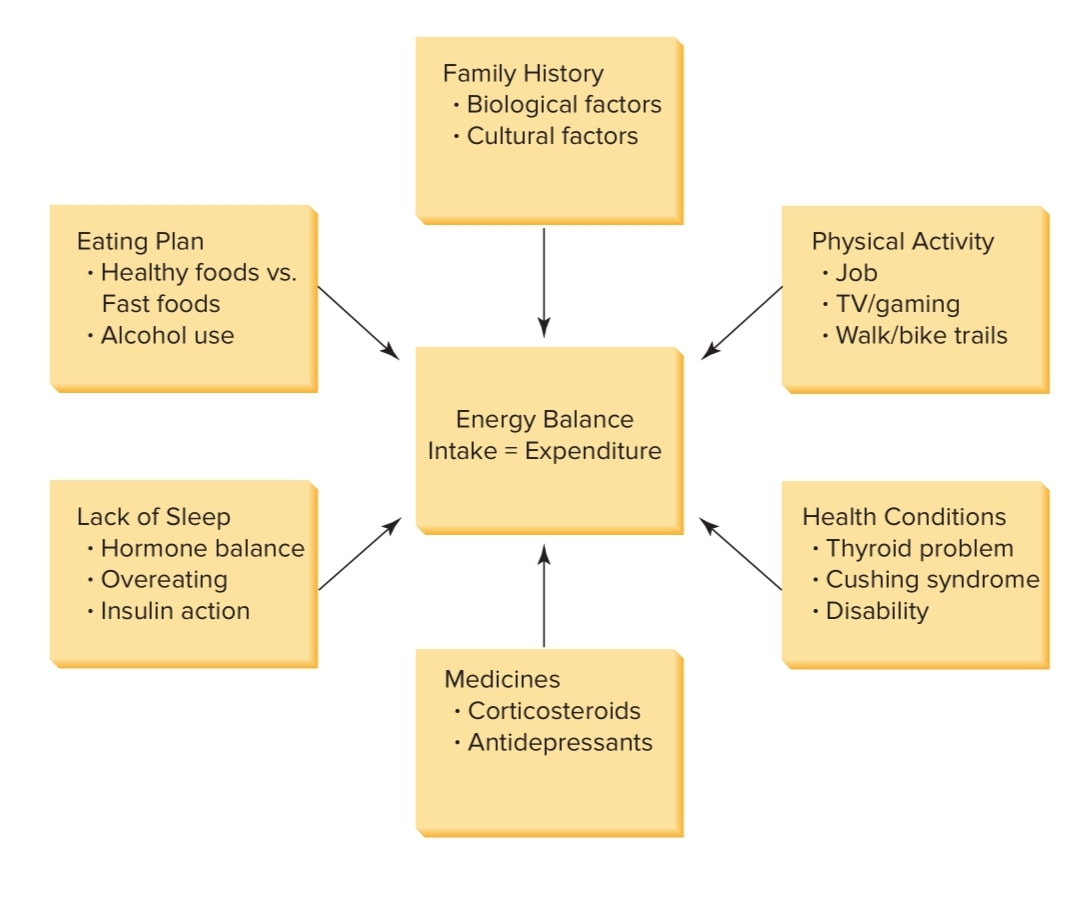KEY FACTORS AFFECTING WEIGHT LOSS
Causes of Obesity
There is clearly no single cause of obesity. Obesity is related to a wide variety of genetic and environmental factors that can alter energy balance, which, in turn, leads to weight gain and obesity. The above image provides a snapshot of some of the factors that can alter energy balance:
1. Family history includes both the genetics
2. involved as well as the lifestyle (physically active, planned meals vs. fast food, emotional, environment, job security, etc.).
Researchers have determined, on the basis of an analysis of the relationships between and among nine types of relatives (spouses, parent-child, siblings, uncle-nephew, etc.), that 25% of body fat and fat mass is tied to genetic factors, and 30% is due to cultural transmission.
1. Eating Plan—is your diet calories balance?
2. Alcohol consumption do add up more calories.
3. Physical activity—Is the person exercising a minimum of 180minutes per week)? Does the person have a sedentary job?
4. How much time is spent watching TV or playing computer games?
5. Health conditions such as having insufficient thyroid hormone (i.e., being hypothyroid) or having Cushing’s syndrome (i.e., too much cortisol due to overproduction of ACTH)
6. Medications like antidepressants and the corticosteroids (linked to Cushing’s syndrome)
7. Lack of sleep affects hormones involved in eating behavior (e.g., leptin) and provides more opportunities for eating.
1. Family history includes both the genetics
2. involved as well as the lifestyle (physically active, planned meals vs. fast food, emotional, environment, job security, etc.).
Researchers have determined, on the basis of an analysis of the relationships between and among nine types of relatives (spouses, parent-child, siblings, uncle-nephew, etc.), that 25% of body fat and fat mass is tied to genetic factors, and 30% is due to cultural transmission.
1. Eating Plan—is your diet calories balance?
2. Alcohol consumption do add up more calories.
3. Physical activity—Is the person exercising a minimum of 180minutes per week)? Does the person have a sedentary job?
4. How much time is spent watching TV or playing computer games?
5. Health conditions such as having insufficient thyroid hormone (i.e., being hypothyroid) or having Cushing’s syndrome (i.e., too much cortisol due to overproduction of ACTH)
6. Medications like antidepressants and the corticosteroids (linked to Cushing’s syndrome)
7. Lack of sleep affects hormones involved in eating behavior (e.g., leptin) and provides more opportunities for eating.

